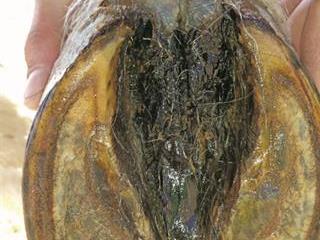The agricultural community seems to have reached consensus – President Jacob Zuma’s cabinet is an improvement on the previous dispensation as far as agriculture is concerned. Stephan Hofstätter examines the new ministers, where they come from and what agriculture can expect from them.
The land reform portfolio presents a conundrum no
cabinet minister has so far effectively tackled. Move too fast and aggressively to reverse the effects of restrictions on landownership under apartheid, and you erode confidence in property rights and discourage investment. Act too cautiously and you risk fuelling popular discontent.
Thabo Mbeki’s appointment of rank amateurs Thoko Didiza and her destructive successor Lulama Xingwana to run this complex and politically explosive portfolio show how little importance he attached to the land issue. Xingwana has effectively been demoted to head the arts and culture ministry. Few will miss her abrasive style and political posturing which undid much of the work done by President Nelson Mandela on rural reconciliation and nation building.
President Jacob Zuma has made good on his Polokwane promises to address the plight of millions of South Africans left to rot in rural slums. He has created a new ministry of rural development and land reform and chosen Gugile Nkwinti to head it.
As Eastern Cape agriculture MEC, Nkwinti has first-hand experience of how the neglect of former homelands by pre- and post-apartheid administrations, and the state’s failure in the last decade to reform property ownership of communal land, retarded economic development in one of the country’s poorest provinces.
Eastern Cape officials are also notorious for corruption, mismanagement and a Byzantine web of allegiances which get in the way of effective governance. In these areas Nkwinti made some improvements by introducing performance agreements for senior managers to reduce gross underspending in their departments and improve lacklustre delivery. He has also shown himself able to mediate conflict, a crucial strength sorely lacking in his predecessor. But the results of his efforts haven’t been particularly impressive in the Eastern Cape. He’ll have to show he can be an implementer as well as conciliator if he wants to make a real stab at solving the land issue in South Africa.
Land redistribution in itself, though a non-negotiable guaranteed by our constitution, is of secondary importance to generating jobs and wealth in rural areas. This can only be achieved if investors and commercial farmers are taken on board too.
Agriculture
Zuma expressed a keen understanding of the complexities of agriculture and land reform when interviewed by Farmer’s Weekly last year.
This was confirmed by choosing to split agriculture from land and his choice of the highly capable Tina Joemat-Pettersson to head the new Agriculture, Forestry and Fisheries Department, with Freedom Front Plus leader Dr Pieter Mulder as her deputy.
Achieving rural development primarily through economic growth, not redistribution of wealth, was a central policy thrust during Joemat-Pettersson’s tenure as agriculture and land reform MEC in the Northern Cape. She has also gone some way in winning over the commercial farmer constituency, and should therefore have no trouble working with her deputy. When she first took the floor at the Northern Cape legislature in 2004, the looks of apprehension and incredulity on the faces of opposition leaders were unmistakable.
Having Joemat-Pettersson running education – as she’d done admirably for two terms, consistently achieving the best matric results in the country – was easier to process. Farming was a complicated mix of science, economics and emotive politics. They doubted she could hack it.
It didn’t take them long to change their minds. When Farmer’s Weekly conducted a survey on agricultural MECs, getting farmer’s unions to rate their performance, Joemat-Pettersson came out top in the country. Many commercial and emerging farmers in the province hold her in high regard for her quick intelligence and hard work, being accessible and open to constructive engagement, and acting on agreements reached.
Although hardly soft on issues such as farm dweller rights, she has also shown she has little patience for non-government organisations that prefer public posturing to finding solutions to some of the sectors’ most intractable problems, including evictions, minimum wage and worker abuse.
Joemat-Pettersson exudes dynamism. She wants results and has shown she can get them. It will be interesting to see what she can achieve on a bigger canvas.
Land Bank
The appointment of a competent minister to run agriculture lends weight to speculation the Land Bank may be returned to the Agriculture Department. But this is unlikely to happen immediately.
Treasury took over the bank after a series of corruption and mismanagement scandals caused farmers and agricultural cooperatives to take billions in loan facilities to commercial banks.
The overstretched finance ministry is known to be unhappy at being saddled with the extra responsibility. But confidence among its investors that the bank’s turnaround strategy will succeed is based largely on Treasury’s continued stewardship.
Environment worse off
Zuma’s decision to split tourism and environmental affairs, with Marthinus van Schalkwyk to head tourism, was motivated by political considerations rather than merit.
Van Schalkwyk showed he had the intelligence to handle the technically demanding environment portfolio, making good progress in areas such as international climate change negotiations. But he lacked the political muscle to take on powerful commercial interests and their ANC backers, especially mining companies exploiting sensitive catchment areas.
A big disappointment is putting Buyelwa Sonjica in charge of the newly created water and environmental affairs ministry. As head of minerals and energy Sonjica proved ready to do the bidding of mining companies, often at the expense of farmers and communities, including with the well-publicised Wild Coast titanium mine proposal. She now has final say in water licence applications, including for mines, as well as adjudicating on their environmental impacts. This does not bode well for agriculture or environmental protection.









